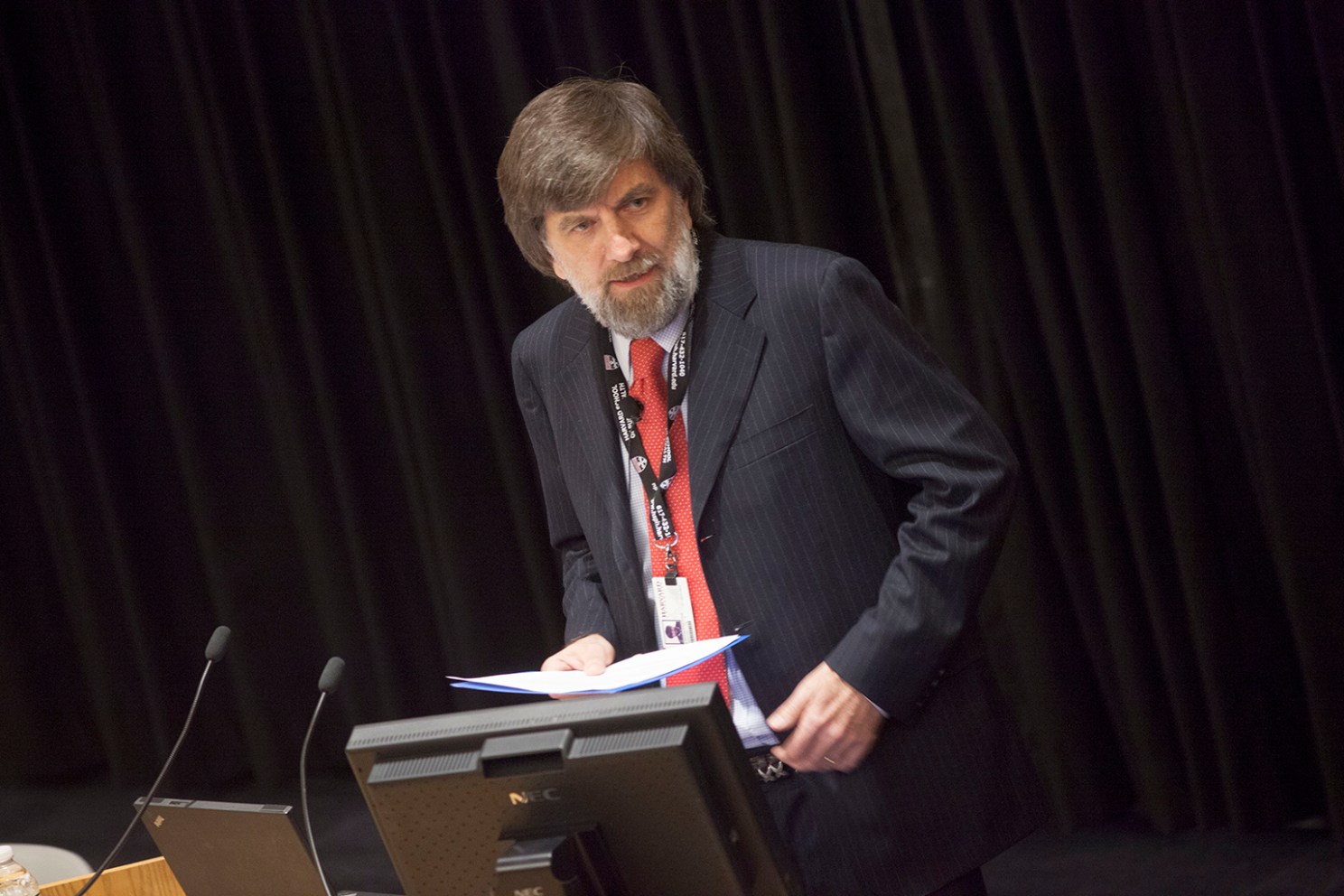The intersection of public health and clinical medicine is changing

David Hunter, Vincent L. Gregory Professor in Cancer Prevention, Dean for Academic Affairs, Department of Epidemiology, Harvard School of Public Health speaks during the HSPH conference “PEPFAR in Africa” that explored Harvard’s role in PEPFAR, president Bush’s successful effort to finance and fight AIDS in Africa. Kris Snibbe/Harvard Staff Photographer
To achieve the World Health Organization’s goal of helping provide “the highest attainable standard of health” for individuals, it’s time to rethink the divisions between public health and clinical medicine, especially preventive medicine, according to an Aug. 5, 2021, Perspective piece in the New England Journal of Medicine (NEJM)
The article, authored by David Hunter, Vincent L. Gregory Professor of Cancer Prevention, Emeritus at Harvard T.H. Chan School of Public Health, discussed how public health campaigns over the last century have dramatically extended life expectancy by driving down smoking rates, promoting healthier eating habits and reducing certain air pollutants, which in turn has had a profound influence on the field of medicine.
But, as Hunter explained, these “advances can feel remote and abstract” to doctors and other health professionals who are “engaged in the daily grind of clinical work.” Better understanding the many influences on people’s health, Hunter wrote, will benefit “anyone who aspires to improve health — whether for whole populations or for the next patient in the waiting room.”
The article is the first in a new NEJM Perspective series that is exploring the fundamentals in public health in the wake of the COVID-19 pandemic. Barry Bloom, Joan L. and Julius H. Jacobson Research Professor of Public Health, is a guest editor for the series.
In an Aug. 5, 2021, NEJM editorial introducing the series, Bloom and co-authors noted that “the Covid-19 pandemic has awakened many physicians to the value of viewing wellness and disease through the lens of public health as well as that of clinical medicine.” Eric Rubin, editor-in-chief of NEJM and adjunct professor of immunology and infectious diseases at Harvard Chan School, co-authored the editorial.





